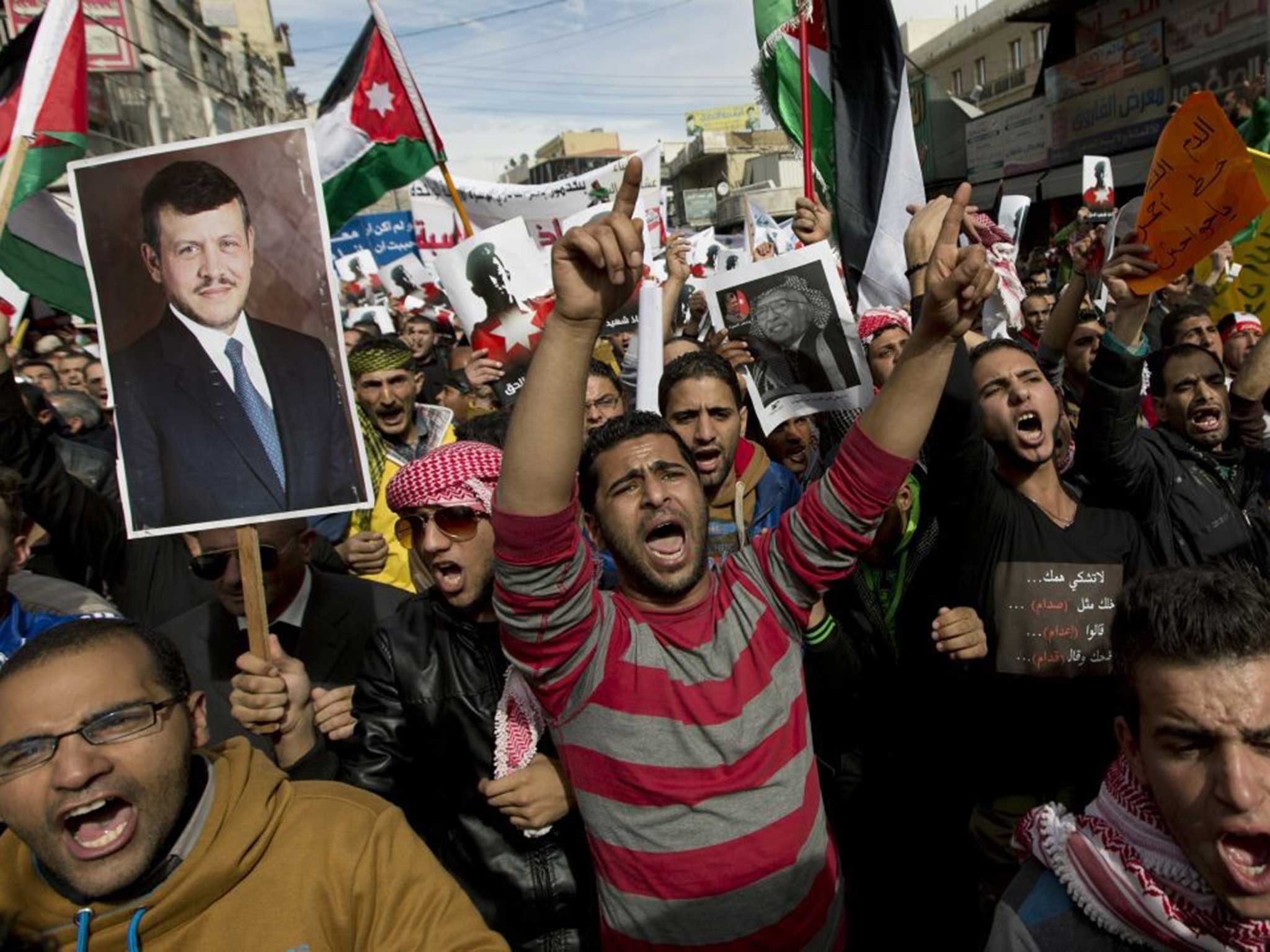After the death of Muath al-Kasaesbeh the tide may be turning against Isis in Jordan
Many Jordanians have joined jihad but sympathy for Isis may now be in decline

Everyone in Zarqa knows someone who has gone to fight in Syria or Iraq and, in recent years, funeral tents to mourn the deaths of young men have appeared with increasing regularity.
Like Muath al-Kasaesbeh, the pilot burnt to death by Isis, they are referred to as martyrs – but unlike him they died fighting alongside the jihadists of Jabhat al-Nusra and Isis.
Tens of thousands of Jordanians took to the streets of the capital, Amman, yesterday, demanding revenge for the pilot’s murder. But behind the scenes the government still has trouble suppressing sympathies among some Jordanians for Isis.
An hour to the north of Amman, Zarqa is a military town. But it also provides many jihadist fighters for Isis. This town is where the greatest ideologues of Jordanian jihadi Islam hail from. Abu Zarqawi, the founder of al-Qaeda in Iraq, took his nom de guerre from the town. And Abu Mohammed al-Maqdisi, the jihadist ideologue released from a Jordanian jail on Thursday, also hails from Zarqa.
Some 1,500 Jordanians have gone to fight in Syria, the International Centre for the Study of Radicalisation and Political Science estimates.
Some in Zarqa feel that fighting in Syria is a duty. “Syria is ours and we have to get it back; it’s for Muslims,” says Sheikh Salah Abdel Abu Rahman. He said targeting of salafis – fundamentalist zealots – by Jordan’s security services means they are unable to find jobs. Naturally, fighting in Syria was an attractive alternative, he told The Independent. “Why not join Jabhat al Nusra and Daesh (the common Arab nickname for Isis) if they give him money and a fine life there?”
A poll late last year, but before Lt Kasaesbeh was taken prisoner, found 10 per cent of Jordanians did not consider Isis a terrorist organisation. The country’s education ministry has tried to counter the glamorous image that Isis presents of itself in its slick videos by publishing its own booklets with titles like “An Open Letter to Ibrahim al-Badri, aka al-Baghdadi”.
The text, a thesis by 120 Islamic scholars, is not easy reading for school pupils.
In pictures: Anti-Isis protests in Jordan
Show all 15“People look at Daesh and see an idealisation of Islam,” said Abdullah, a first-year university student. “It’s normal to sympathise with them,” he said. But that was until the murder of Lt Kasaesbeh. “This is not Islam,” he said.
Ahmed al-Omaris was also in favour of Isis until it chose to employ fire to kill Lt Kasaesbeh. “They are against Yazidis and Shia,” he said approvingly. But now, he added, he couldn’t support them any more.
Some fighters are said to be having second thoughts. “I have heard about three people who have returned from fighting with Daesh after the news of Muath broke,” said Mohammed, 20. Not true, said his friend, Labib, 20, who is also unemployed. People will always keep joining up. “They are poor, they are badly educated. They think they have found their calling. And they get paid a lot of money.”
Unemployment is nearly 30 per cent among men under 25 throughout Jordan.
Khaled Taha, a chemistry teacher, sees the thoughts of Isis in his 16, 17 and 18-year old students. None has yet disappeared off to Syria yet, he says, but it’s only a matter of time.
Subscribe to Independent Premium to bookmark this article
Want to bookmark your favourite articles and stories to read or reference later? Start your Independent Premium subscription today.

Join our commenting forum
Join thought-provoking conversations, follow other Independent readers and see their replies